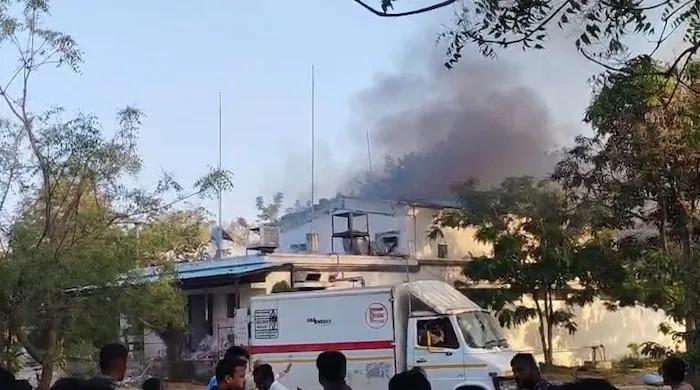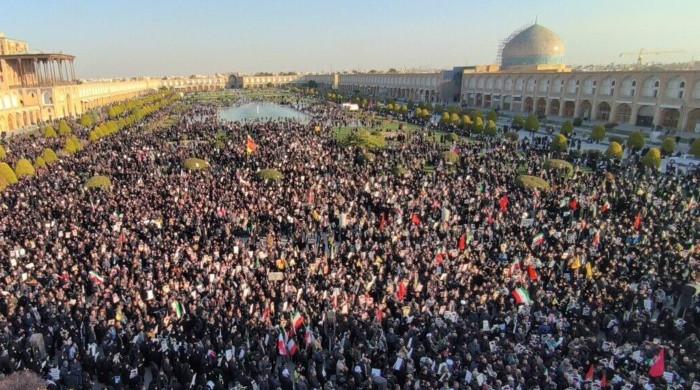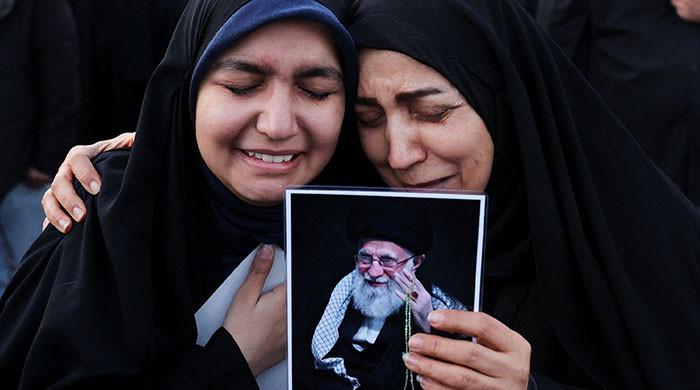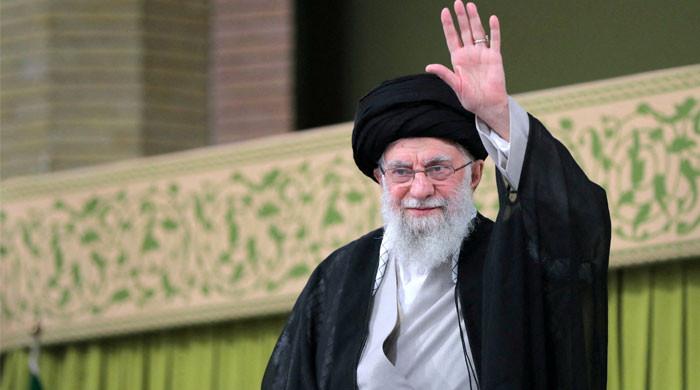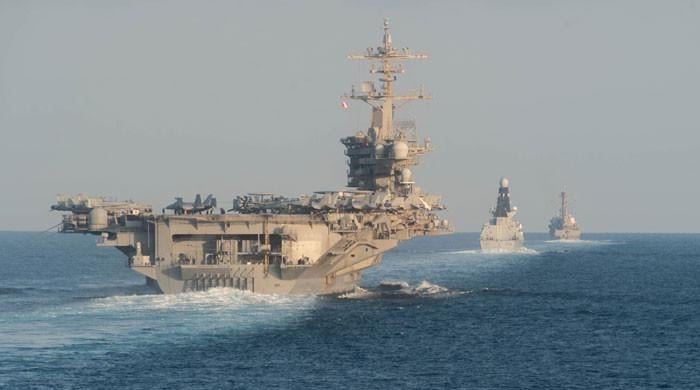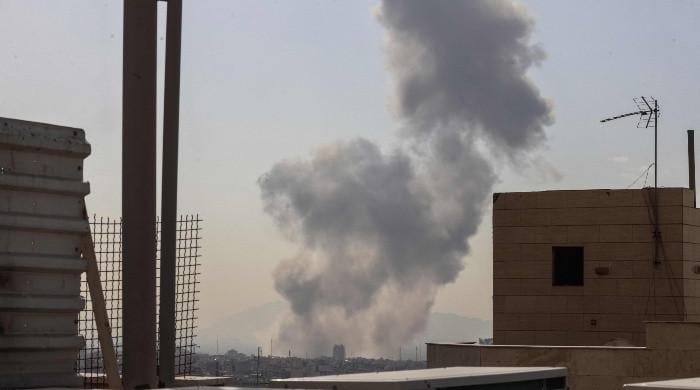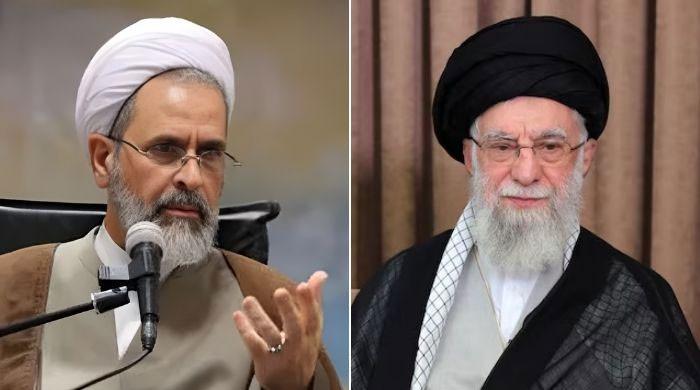Saudi-led military coalition not against any country, sect: Gen (retd) Raheel Sharif
Former COAS said that the IMCTC would support its partners mainly through intelligence sharing and capacity building
November 27, 2017
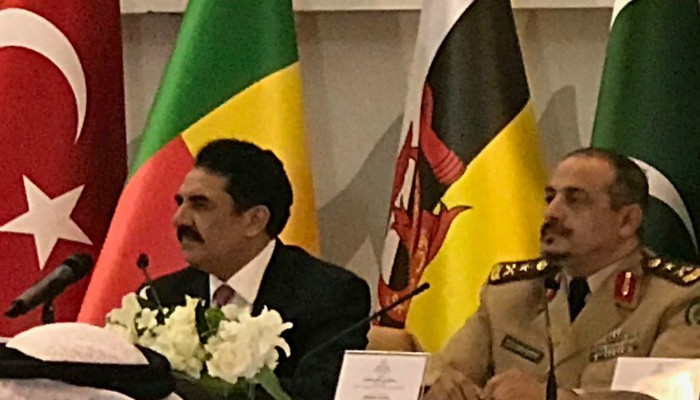
RIYADH: The military commander of Islamic Military Counter Terrorism Coalition (IMCTC) General (retd) Raheel Shareef Sunday emphasised that the sole objective of IMCTC was counter-terrorism and it was not against any country or any sect.
While addressing IMCTC's defence ministers' conference in Riyadh, he said that while all individual states were making efforts against the menace of terrorism, the required level of synergy and resources were lacking, said a press release issued here.
He said that IMCTC would support its partners mainly through intelligence sharing and capacity building.
General Raheel said that Muslim world was the biggest sufferer of the menace of terrorism and during last six years alone, more than 70 per cent of all deaths attributed to terrorism had occurred in Muslim countries.
"Fight against the faceless enemy with extremist ideology is complex and challenging, requiring collaboration. Pakistan has turned the tide and has had defeated the menace," he said further.
Saudi vows new Islamic alliance 'will wipe terrorists from earth'
Saudi Arabia's crown prince vowed to "pursue terrorists until they are wiped from the face of the earth" as officials from 40 Muslim countries gathered Sunday in the first meeting of an Islamic counter-terrorism alliance.
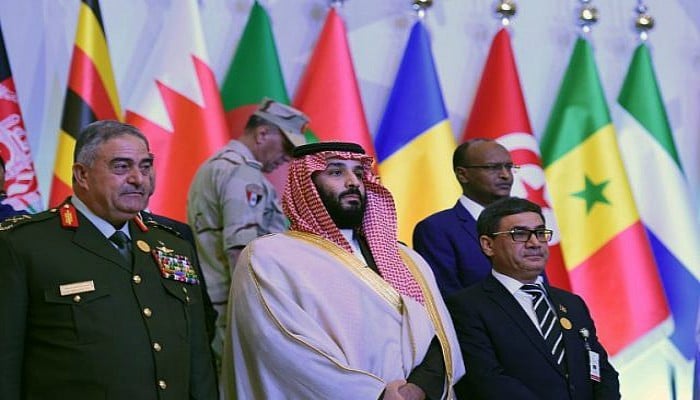
"In past years, terrorism has been functioning in all of our countries... with no coordination" among national authorities, Prince Mohammed bin Salman, who is also the Saudi defence minister, said in his keynote address to the gathering in Riyadh.
"This ends today, with this alliance."
The summit is the first meeting of defence ministers and other senior officials from the Islamic Military Counter Terrorism Coalition, which officially counts 41 countries and identifies as a "pan-Islamic unified front" against violent extremism.
The alliance was announced in 2015 under the auspices of Prince Mohammed, whose rapid ascent since his appointment as heir to the throne in June has shaken the political scene across the region.
Sunday's meeting comes as several military coalitions, including key Saudi ally the United States, battle to push Daesh from its last remaining bastions in Iraq and Syria.
The alliance groups largely, although not exclusively, Sunni-majority or Sunni-ruled countries.
It excludes Iran, as well as Syria and Iraq, whose leaders have close ties to Tehran.
Sunday´s meeting coincides with an escalation in tensions between Riyadh and Tehran, particularly over wars in Syria and Yemen and the political structure of multi-confessional Lebanon.
Saudi Arabia accuses Iran of supporting armed groups across the Middle East, including Lebanon´s Shiite Hezbollah and Yemen´s Huthi rebels.
"The pillar of this coalition is inclusion," said Saudi General Abdulelah al-Saleh, the alliance´s acting secretary general, playing down the exclusion of the three countries.
"Our common enemy is terrorism, not any religion, sect or race."
The alliance meeting in Riyadh brings together Muslim or Muslim-majority nations including Egypt, the United Arab Emirates, Bahrain, Afghanistan, Uganda, Somalia, Mauritania, Lebanon, Libya, Yemen and Turkey.
While the alliance officially includes Qatar, which is the target of a six-month boycott led by Saudi Arabia, organisers in Riyadh said no Qatari officials were present at the meeting.
Qatar´s flag was also absent.
Saudi Arabia, the UAE, Egypt and Bahrain abruptly cut diplomatic and trade ties with Qatar in June, accusing the emirate of being too close to Iran and supporting extremism.
Doha denies the allegations.
Egypt, which sent a military official and not its defence minister to Sunday´s meeting, is reeling from a Friday attack on a mosque that killed more than 300 people during prayer time.
While Daesh has not claimed responsibility, Egyptian authorities say the organisation is the main suspect as the mosque is associated with followers of the mystical Sufi branch of Sunni Islam, whom Daesh has branded heretics.
Prince Mohammed said Friday´s "painful event" was a reminder of the "danger of terrorism and extremism".
"Beyond the killing of innocent people and the spread of hatred, terrorism and extremism distort the image of our religion," he said.
Since his sudden appointment as crown prince, Prince Mohammed has moved to consolidate power, announcing crackdowns on both terrorism and corruption.
A corruption purge saw around 200 members of the Saudi elite including princes, ministers and business tycoons arrested or sacked earlier this month.






